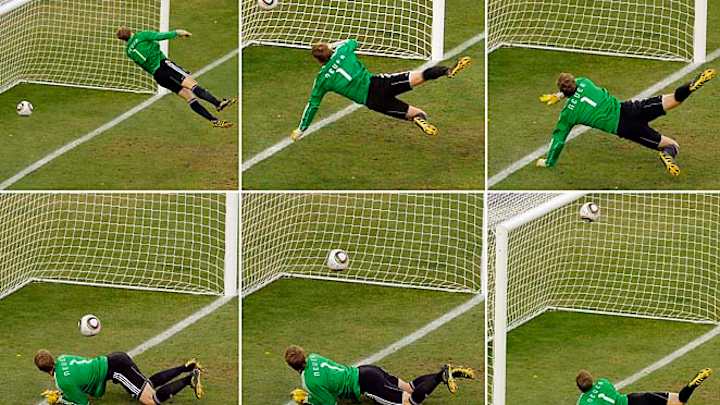Goal-line technology to be used at World Cup, says FIFA


FIFA committed Tuesday to using goal-line technology at the 2014 World Cup in Brazil, and could have four systems competing for selection.
FIFA said it is now seeking tenders from companies which want their system to be used at the Confederations Cup in June and next year's World Cup.
"Interested GLT companies will be invited to join an inspection visit to the Confederations Cup venues, currently scheduled for mid-March, with a final decision due to be confirmed in early April,'' FIFA said in a statement.
LYTTLETON: Champions League preview
FIFA President Sepp Blatter insisted on giving World Cup referees high-tech aids to rule on disputed goal-line incidents after seeing England midfielder Frank Lampard have a clear goal denied against Germany at the 2010 tournament in South Africa.
The English Premier League also said Tuesday that plans are on course to introduce goal-line technology by the start of the new season in August.
The decision by FIFA was expected once its rule-making panel, known as IFAB, decided last July to approve goal-line technology at competitive matches after two systems passed extensive tests.
The camera-based Hawk-Eye system and GoalRef, which uses magnetic sensors, were used at the Club World Cup in Japan in December.
Those two systems were expected to compete for World Cup duty, though two competitors are making late entries in the contest.
FIFA said two German systems have completed tests and could soon be approved for use. The companies are not being formally identified until licensing is approved.
DEITSCH: Grading Gus Johnson's Fox Soccer debut
One system has passed tests devised for FIFA by a Zurich-based technical institute, and results for the second are expected this month, FIFA said.
Hawk-Eye is already used in tennis and cricket. The English company was bought by Sony Corp., a World Cup sponsor, during the testing process.
GoalRef uses magnetic sensors in the goalposts to track an "intelligent'' ball, made by Danish company Select.
Both systems relay information within one second to the referee's wristwatch. Both passed all pre-game tests in Japan but were not called upon to determine a goal.
Before the 2010 World Cup, Blatter had long opposed taking the human element of decision-making from referees. He changed his stance after seeing match officials miss Lampard's shot bounce off the crossbar and land fully over the goal line in Bloemfontein. England would have leveled at 2-2 before halftime but lost 4-1 in the second round.
Blatter said two days later that FIFA should reopen the debate, although video replay remains off limits.
For the Premier League, discussions are underway with the technology makers before a decision is made on which system to adopt. As well as the systems being bought by the 20 clubs, the Premier League then will have to pay a licensing fee to FIFA to use its approved technology.
"We are progressing in discussions with technology companies,'' Premier League spokesman Dan Johnson told The Associated Press. "We are still hopeful we will conclude those negotiations and be in a position to put a supplier in all Premier League grounds for the start of next season.''
A final decision will probably have to be made by clubs by June to give them time to test the technology.
PODCAST: Champions League, Gus Johnson review

